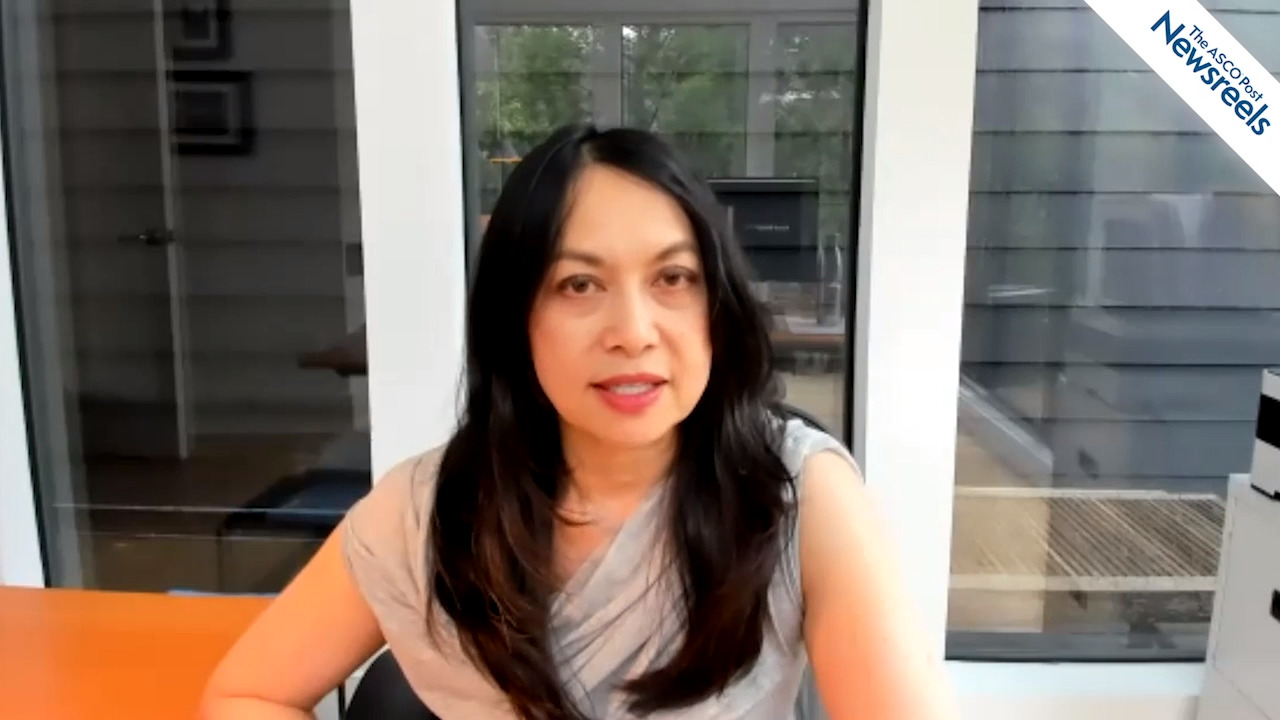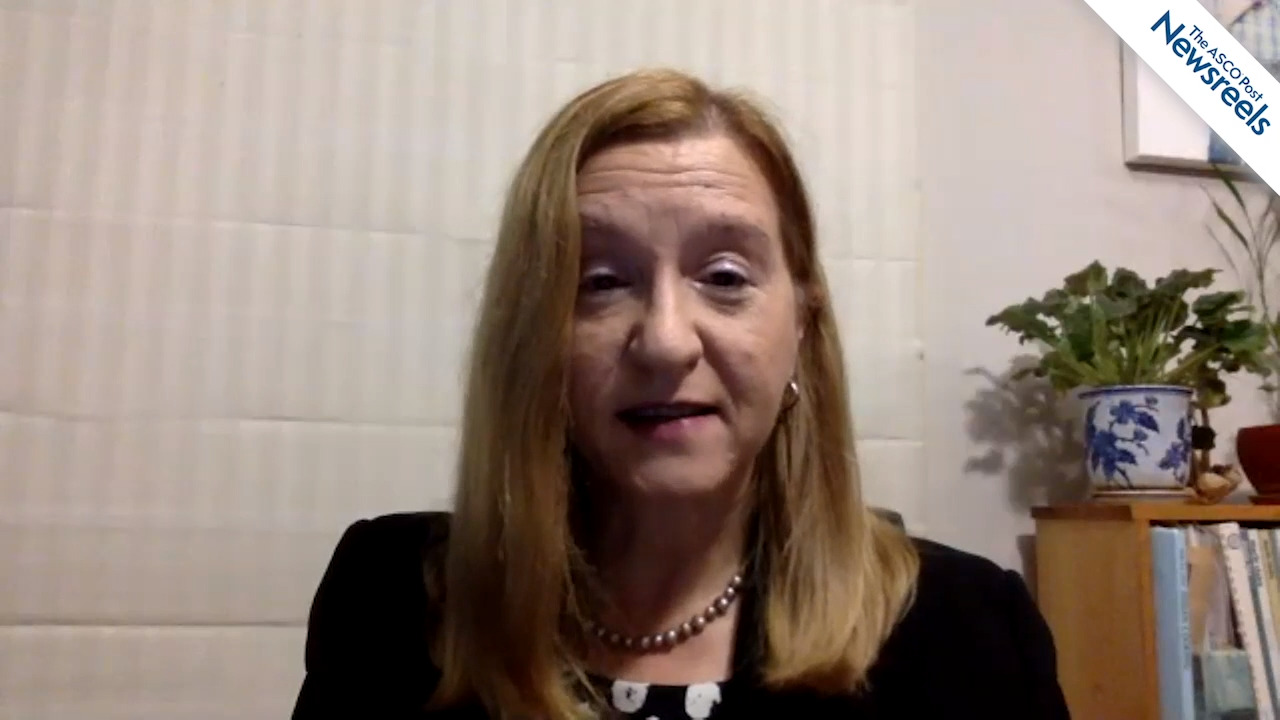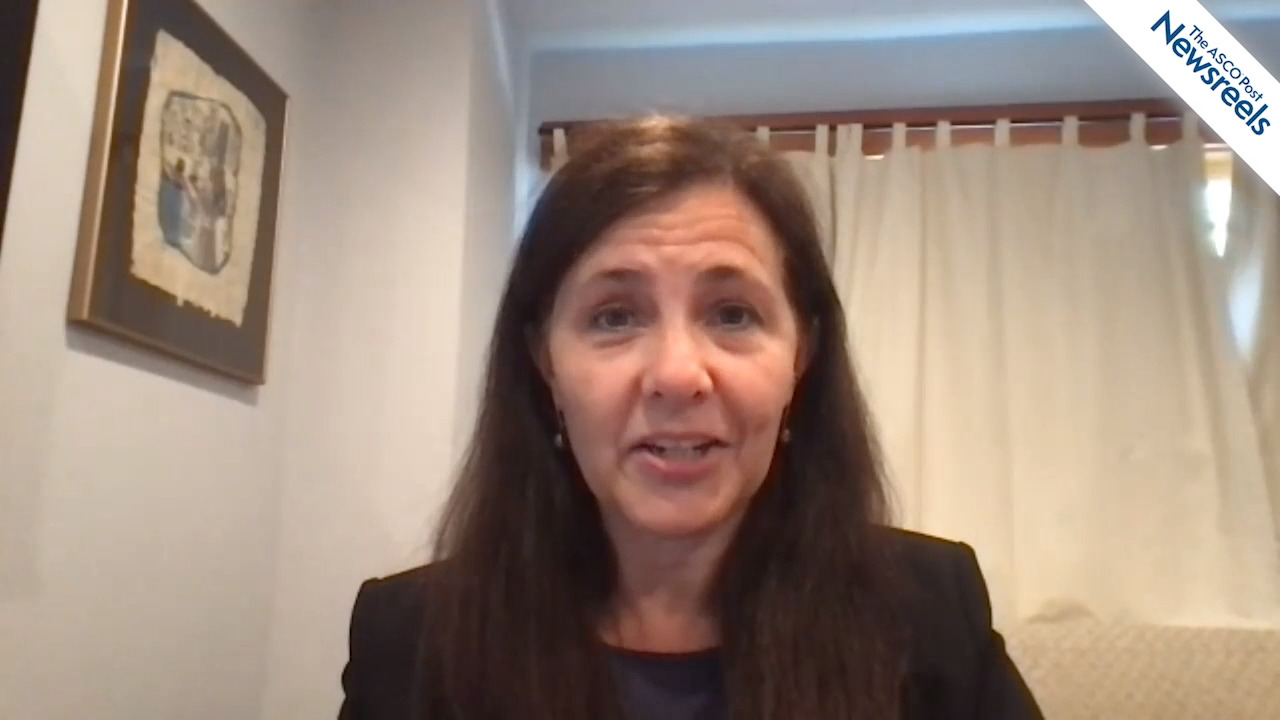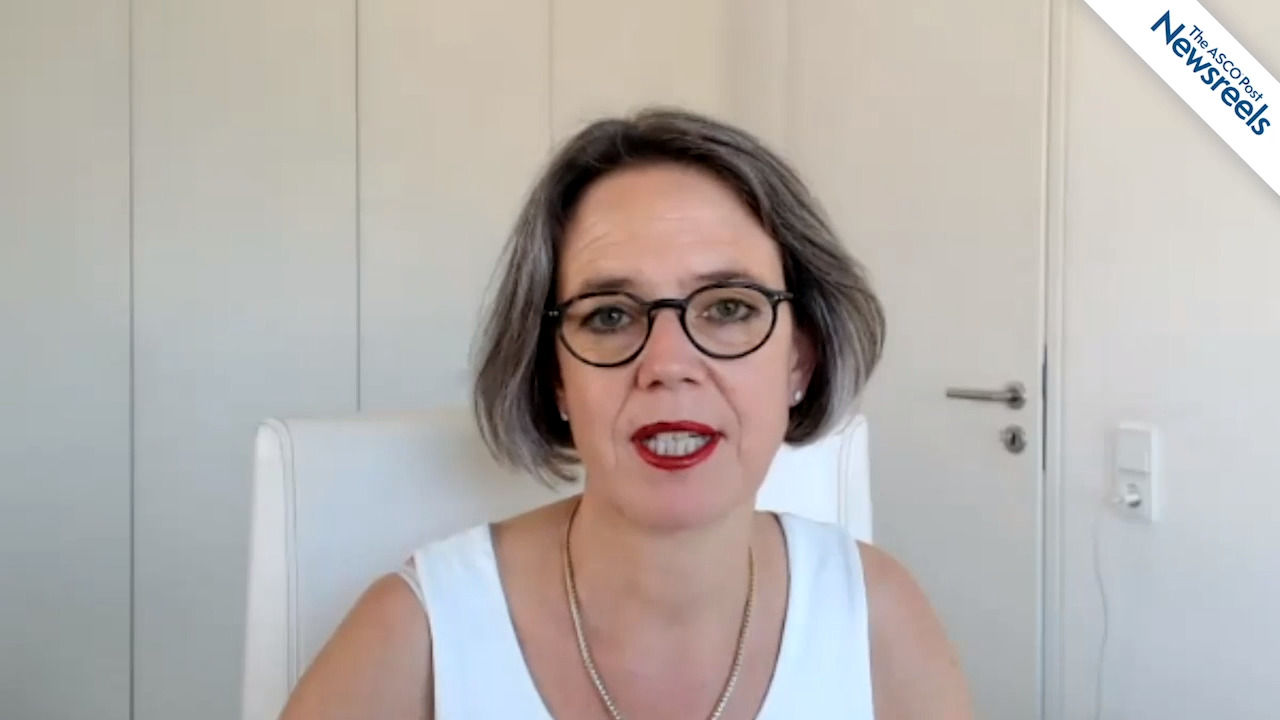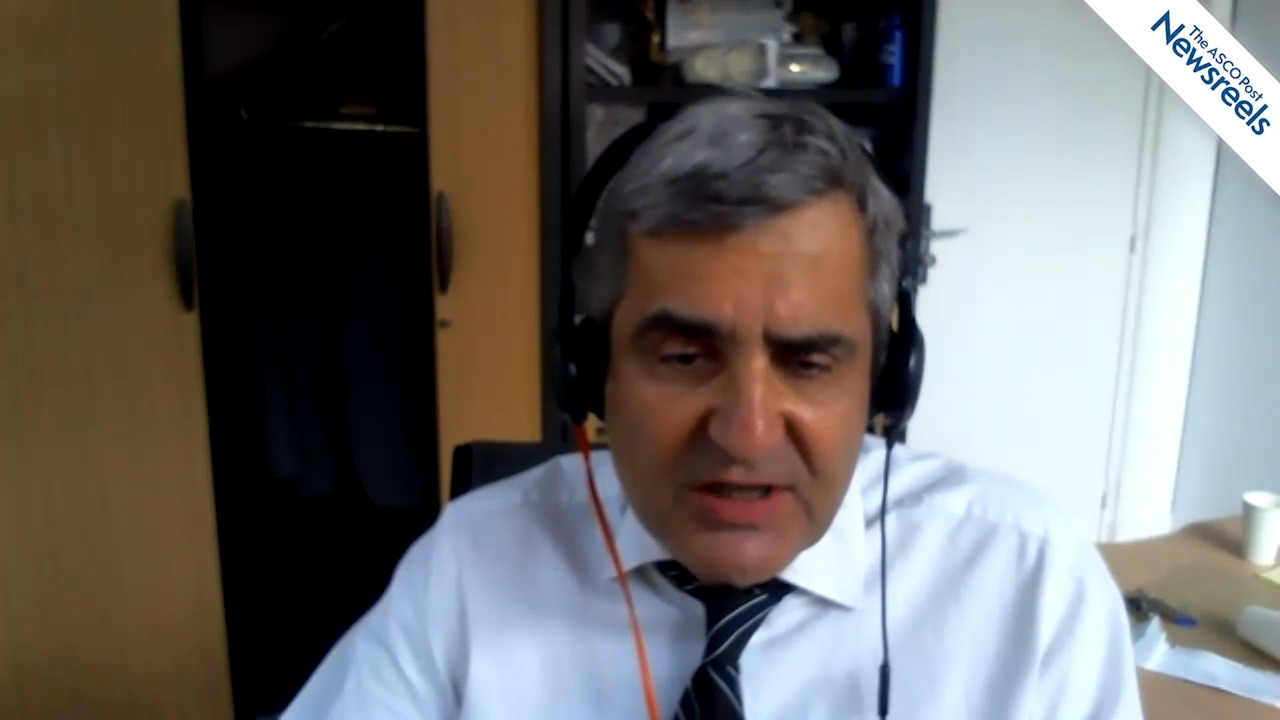Brian I. Rini, MD, on RCC: Pembrolizumab Plus Axitinib vs Sunitinib as First-Line Therapy
2021 ASCO Annual Meeting
Brian I. Rini, MD, of Vanderbilt University, discusses findings from KEYNOTE-426, the longest follow-up of a checkpoint inhibitor (pembrolizumab) combined with a VEGF/VEGFR inhibitor (axitinib) for first-line clear cell renal cell carcinoma. The trial results continue to support this combination as a standard of care for patients with previously untreated disease (Abstract 4500).
The ASCO Post Staff
Cathy Eng, MD, of Vanderbilt-Ingram Cancer Center, discusses two abstracts from a session she co-chaired: the phase II DEEPER trial, which explored the use of FOLFOXIRI plus cetuximab vs FOLFOXIRI plus bevacizumab as first-line treatment in metastatic colorectal cancer with RAS wild-type tumors; and the phase II FIRE-4.5 study, which investigated FOLFOXIRI plus either bevacizumab or cetuximab as first-line treatment of BRAF V600E–mutant advanced disease (Abstracts 3501 and 3502).
The ASCO Post Staff
Linda R. Mileshkin, MBBS, MD, of the Peter MacCallum Cancer Centre, discusses phase III findings from the OUTBACK trial, which showed that adjuvant chemotherapy given after standard cisplatin-based chemoradiation for women with locally advanced cervical cancer did not improve either overall or progression-free survival (Abstract LBA3).
The ASCO Post Staff
Heather A. Wakelee, MD, of Stanford University Medical Center, discusses the primary disease-free survival results of IMpower010, a phase III study that compared adjuvant atezolizumab vs best supportive care after adjuvant chemotherapy in patients with early-stage resected non–small cell lung cancer (Abstract 8500).
The ASCO Post Staff
Sibylle Loibl, MD, PhD, of the German Breast Group, discusses results from the phase III GeparNUEVO study, which investigated neoadjuvant durvalumab in addition to anthracycline/taxane-based neoadjuvant chemotherapy in patients with early triple-negative breast cancer (Abstract 506).
The ASCO Post Staff
Thierry André, MD, of Hôpital Saint-Antoine, discusses final overall survival data for the phase III KEYNOTE-177 study, which confirmed pembrolizumab as a new standard of care for first-line treatment of patients with microsatellite instability–high/mismatch repair–deficient metastatic colorectal cancer (Abstract 3500).
